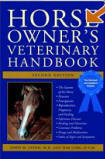|
Equine Kingdom Riding Academy
is no longer in operation. These more than 2,000 unique pages are provided for historical and educational reference. |
||
|
|
||
|
|
Famous Management Figureheads |
|
W. Edwards Deming: He had a vision of a better world, one that would advance commerce, prosperity, and peace. He came up with the System for Profound Knowledge, stating that the individual, once transformed, would:
Douglas McGregor: He developed the Theory X and Theory Y theories. Theory X says that the average person has in inherent hate for work and will avoid it at all costs if they can, and that they need to constantly be hounded and watched to get them to do their work. Theory Y states that people don't need a lot of motivation to work, and that work to them is as natural as breathing, and they enjoy it. Mr. McGregor said that all people fall into one category or the other. Elton Mayo: Elton Mayo performed the Hawthorne Experiments on groups of people to determine the role of social position in work environments. He concluded that recognition, security, and sense of belonging are essential in determining the productivity of workers. Max Weber: Max Weber is known for developing the system of bureaucracy. He created the system for the workplace. Frederick Taylor: Frederick Taylor is known as the 'Father of Scientific Management'. He came up with ways to apply the scientific method to the workplace in order to increase productivity. |




